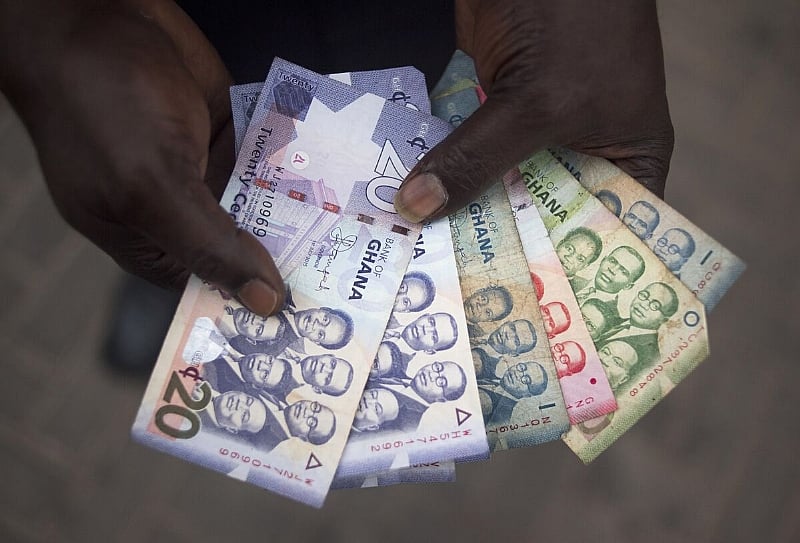The Ghanaian Cedi exhibited a nuanced performance against the US dollar on Thursday, December 26, 2024, holding steady in the buying rate but experiencing a slight depreciation in the selling rate. According to Cedirates.com, a reliable source for currency information in Ghana, the Cedi’s buying rate remained at GHS14.66, identical to the previous day’s figure. However, the selling rate slipped by 2 pesewas to GHS15.12, indicating a marginally weaker position for the Cedi when exchanging it for US dollars. This subtle shift suggests a slight increase in demand for the US dollar relative to the Cedi in the retail market.
A comparison with interbank rates further illuminates the Cedi’s performance. Data reveals a buying rate of GHS14.64 and a selling rate of GHS14.66 against the US dollar in the interbank market. This near parity between the buying and selling rates at interbank level suggests a relatively balanced market dynamic among financial institutions. The slight difference between the retail rates provided by Cedirates.com and the interbank rates highlights the typical spread maintained by commercial banks and forex bureaus to cover operational costs and generate profit.
Beyond the US dollar, the Cedi’s performance against other major currencies also provides a comprehensive view of its market position. The British Pound Sterling traded at an average buying rate of GHS18.11 and a selling rate of GHS18.96. The Euro, on the other hand, registered buying and selling rates of GHS15.12 and GHS15.76, respectively. Comparing these rates with the interbank rates – GHS18.38 for the Pound and GHS15.23 for the Euro (selling rates) – reveals a similar pattern observed with the US dollar, where retail rates are generally slightly higher than interbank rates. This difference underscores the role of market segmentation and varying operating costs in influencing currency exchange rates.
Remittance services like LemFi and Afriex offered competitive rates for money transfers to Ghana. For US dollar transfers, LemFi and Afriex provided rates of GHS14.65 and GHS14.70 per dollar, respectively. These rates are highly competitive, closely mirroring the interbank market rates and offering a cost-effective alternative to traditional remittance channels. For British Pound transfers, the rates varied slightly, with LemFi offering a buying rate of GHS18.34 and Afriex providing a buying rate of GHS15.27. This discrepancy might be attributable to differences in their operational models and target markets. Euro transfers saw Afriex offering a buying rate of GHS15.31, while LemFi provided a slightly lower rate of GHS15.22.
The rates offered by these remittance services highlight the growing importance of digital platforms in facilitating cross-border money transfers. These platforms leverage technology to streamline the process, often providing more favorable exchange rates compared to traditional money transfer operators. The competitive landscape among these digital platforms further benefits consumers by driving down transfer costs and improving the overall efficiency of remittances.
Finally, for those looking to make international online payments for services like Netflix, Spotify, or Apple Music, Visa and Mastercard offered a unified selling rate of GHS15.78 per US dollar. This rate, higher than both the interbank and remittance rates, reflects the fees and charges associated with international card transactions. The standardized rate across both payment processors suggests a relatively stable pricing structure within the international payment processing industry for Ghanaian consumers. This information provides a valuable benchmark for individuals making online purchases in US dollars and underscores the importance of comparing exchange rates across different payment methods to minimize costs.


